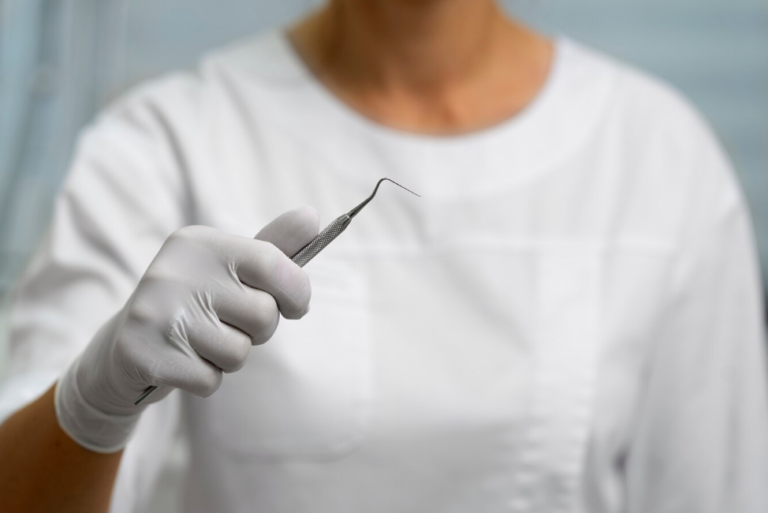Finding the Best Dentist in San Diego, CA: What You Need to Know
Understanding Your Dental Needs
Before you even start searching for a dentist san diego ca, it’s a good idea to figure out what kind of dental care you actually need. Are you just looking for someone to do regular cleanings, or do you have more specific issues? Knowing this will help you narrow down your options and find the right fit.
General Dentistry Versus Specialties
Most people start with a general dentist. They handle routine check-ups, fillings, and basic preventative care. But sometimes, you need more specialized treatment. For example, if you need a root canal, you might see an endodontist. For braces, an orthodontist. Oral surgeons handle things like wisdom teeth extractions. Knowing the difference helps you go directly to the right person. It can save you time and money in the long run.
Considering Family Dental Care
If you have a family, finding a dentist who can treat everyone is super convenient. Some dentists specialize in family care, meaning they’re comfortable treating both kids and adults. This can make scheduling appointments easier and build a long-term relationship with a single practice. Plus, it’s nice to have one place where everyone’s dental records are kept. It’s just simpler that way.
Emergency Dental Services in San Diego
Dental emergencies happen. A sudden toothache, a broken tooth, or an injury to your mouth can all require immediate attention. It’s smart to know where to go before an emergency happens. Some dental offices offer emergency appointments, while others might direct you to a specific emergency dental clinic. Having a plan in place can reduce stress when something unexpected occurs.
It’s important to consider what your dental needs are before choosing a dentist. Think about whether you need general care, specialized treatment, family dentistry, or emergency services. This will help you find a dentist who is the right fit for you and your family.
Key Factors in Choosing a Dentist San Diego CA
Choosing a dentist is a big deal. You want someone who’s good, reliable, and makes you feel comfortable. Finding the right dentist in San Diego, CA, involves more than just a quick search. It’s about finding a professional who meets your specific needs and with whom you can build a lasting relationship.
Evaluating Credentials and Experience
First things first, check their credentials. Make sure your potential dentist graduated from an accredited dental school and is licensed to practice in California. Experience matters too. A dentist who’s been practicing for several years has likely seen a wider range of cases and is better equipped to handle any issues that might arise. Don’t be afraid to ask about their experience with specific procedures, like tooth extraction San Diego, if that’s something you’re concerned about.
Reading Patient Reviews and Testimonials
What are other people saying? Online reviews can give you a good sense of what to expect. Look for patterns. Are most people happy with the care they received? Are there recurring complaints about long wait times or poor communication? Take everything with a grain of salt, but pay attention to consistent themes. Patient reviews offer insights into the dentist’s chairside manner, the office’s efficiency, and the overall patient experience.
Location and Accessibility for Your Dentist San Diego CA
Think about convenience. Is the dentist’s office easy to get to from your home or work? Does it have convenient parking? Are the office hours compatible with your schedule? These things might seem small, but they can make a big difference in the long run. You’re more likely to keep up with regular check-ups if your dentist is easily accessible.
Choosing a dentist is a personal decision. What works for one person might not work for another. Take your time, do your research, and find someone who you trust and feel comfortable with. It’s an investment in your long-term oral health.
Technology and Modern Dental Practices
Modern dentistry has come a long way, and technology plays a huge role in making visits more effective and comfortable. It’s not just about drills anymore; many practices now use advanced tools that can improve diagnosis, treatment, and overall patient experience. When you’re looking for a dentist, it’s worth considering what kind of technology they use.
The Role of Advanced Dental Technology
Advanced dental technology allows for more precise and efficient treatments. Think about it: better tools mean less time in the chair and potentially better outcomes. For example, laser dentistry can be used for various procedures, from gum reshaping to cavity treatment, often with less pain and faster healing times. CAD/CAM (computer-aided design and computer-aided manufacturing) technology allows dentists to create custom-fit crowns and other restorations in a single visit. This not only saves time but also reduces the need for temporary fillings or crowns.
Digital X-rays and Intraoral Cameras
Digital X-rays are a big improvement over traditional film X-rays. They expose patients to significantly less radiation and provide instant images that can be easily viewed and manipulated on a computer screen. This makes it easier for dentists to diagnose problems like cavities, bone loss, and impacted teeth. Intraoral cameras are small, handheld devices that allow dentists to take high-resolution images inside your mouth. These images can be displayed on a monitor, allowing you to see exactly what the dentist sees and better understand any issues that need to be addressed.
Comfort and Sedation Options
Dental anxiety is a real thing, and modern dental practices are increasingly focused on making patients feel comfortable and relaxed. Sedation dentistry offers various options to help ease anxiety, from nitrous oxide (laughing gas) to oral sedatives and even IV sedation for more complex procedures. These options can help you feel calm and relaxed during your appointment, making it easier to get the care you need. Beyond sedation, many offices now offer amenities like comfortable chairs, TVs, and music to help create a more pleasant environment.
Modern dental practices are not just about fixing teeth; they’re about providing a comfortable and positive experience. The use of advanced technology and sedation options reflects a commitment to patient well-being and can make a big difference in how you feel about going to the dentist.
Here’s a quick comparison of traditional vs. modern dental practices:
| Feature | Traditional Dental Practice | Modern Dental Practice |
| X-rays | Film X-rays | Digital X-rays |
| Restorations | Traditional methods | CAD/CAM technology |
| Sedation | Limited options | Various options |
| Patient Comfort | Basic | Enhanced amenities |
Insurance and Payment Options for Your Dentist San Diego CA
Navigating Dental Insurance Plans
Dental insurance can feel like a maze, right? It’s not always straightforward to figure out what’s covered and what’s not. Most plans have a deductible, which is the amount you pay before your insurance kicks in. Then there’s coinsurance, where you and the insurance company split the cost of procedures. Understanding these basics is key to budgeting for your dental care.
Here’s a quick rundown of common dental insurance plan types:
- Dental HMO (DHMO): Usually requires you to choose a primary care dentist from their network. You’ll need a referral to see a specialist.
- Dental PPO (DPPO): Offers more flexibility. You can see any dentist, but you’ll typically pay less if you stay in-network.
- Indemnity Plans: These plans let you go to any dentist without needing a referral, but they often have higher premiums.
It’s a good idea to call your insurance provider and your dentist’s office to confirm coverage details before scheduling any major work. This can help avoid surprise bills later on.
Understanding Out-of-Pocket Costs
Even with insurance, you’ll likely have some out-of-pocket expenses. These can include:
- Deductibles: The amount you pay before your insurance starts covering costs.
- Coinsurance: The percentage of the cost you share with your insurance company.
- Copays: A fixed amount you pay for certain services, like check-ups.
- Non-covered services: Some procedures might not be covered by your plan.
Also, keep in mind that some dentists are “in-network” with your insurance, while others are “out-of-network.” In-network dentists have agreed to accept discounted rates with your insurance company, which can lower your out-of-pocket costs. Out-of-network dentists may charge higher fees, and you might have to pay the difference between their fee and what your insurance covers.
Flexible Payment Solutions
Not everyone has dental insurance, and even those who do might face unexpected costs. Many dental offices in San Diego offer flexible payment options to make dental care more accessible. These can include:
- Payment plans: Breaking down the total cost into smaller, monthly installments.
- Financing options: Third-party financing companies that offer loans for dental work.
- CareCredit: A healthcare credit card that can be used for dental expenses.
- In-house membership plans: Some dental offices offer their own membership plans, which include discounts on services and free or reduced-cost check-ups and cleanings.
It’s always a good idea to discuss payment options with your dentist’s office before starting treatment. They can help you find a solution that fits your budget and ensures you get the care you need.
The Importance of a Consultation
Before committing to a dentist, scheduling a consultation is a really smart move. It’s your chance to get a feel for the practice and figure out if it’s the right fit for you. Think of it as a ‘meet and greet’ before the real work begins. It’s more than just a formality; it’s a chance to build trust and make sure you’re comfortable with the person who’ll be taking care of your teeth.
What to Ask During Your First Visit
Come prepared with questions! Don’t be shy about asking anything that’s on your mind. Here are a few ideas to get you started:
- What’s their approach to preventative care?
- How do they handle emergencies?
- What are the payment options?
- Can they show me before-and-after photos of similar cases?
It’s also a good idea to ask about their experience with specific procedures you might need. For example, if you’re considering implants, ask how many they’ve done and what their success rate is. The more information you gather, the better equipped you’ll be to make a decision.
Assessing the Office Environment
The office environment can tell you a lot about a dental practice. Is it clean and organized? Does the staff seem friendly and helpful? Pay attention to the overall atmosphere and how it makes you feel. A well-maintained and welcoming office is usually a sign of a well-run practice.
A clean and organized office is a good sign, but also consider the technology they use. Are they using modern equipment? Do they seem up-to-date on the latest dental techniques? These things can impact the quality of care you receive.
Building a Relationship with Your Dentist San Diego CA
Finding a dentist is like finding a good mechanic or doctor – it’s all about building a relationship. You want someone you can trust and who listens to your concerns. A good dentist will take the time to get to know you, understand your dental history, and explain treatment options clearly. If you feel rushed or dismissed during the consultation, it might be a red flag. Look for someone who makes you feel comfortable and confident in their care. After all, you’re entrusting them with your oral health, and that’s a big deal!
Preventative Care and Long-Term Oral Health
Taking care of your teeth isn’t just about fixing problems when they pop up. It’s also about stopping them from happening in the first place. Think of it like changing the oil in your car – regular maintenance keeps things running smoothly for longer. With dental care, that means focusing on prevention to keep your smile healthy for years to come.
Regular Check-ups and Cleanings
Regular check-ups are super important. It’s like having a mechanic look at your car to catch small issues before they become big, expensive problems. During these visits, your dentist can spot early signs of decay, gum disease, or other oral health issues. Cleanings remove plaque and tartar buildup that your toothbrush can miss, reducing the risk of cavities and gum problems. How often should you go? Most dentists recommend check-ups and cleanings every six months, but your dentist might suggest a different schedule based on your specific needs.
Personalized Oral Hygiene Advice
Everyone’s mouth is different, so what works for your friend might not work for you. Your dentist or hygienist can give you advice tailored to your specific needs. This might include recommendations for the best type of toothbrush, toothpaste, or floss for your mouth. They can also show you the right way to brush and floss to make sure you’re getting all the nooks and crannies. Personalized advice can make a big difference in your oral health.
Proactive Approaches to Dental Issues
Being proactive means taking steps to prevent problems before they start. This could include things like:
- Fluoride treatments: These strengthen your tooth enamel and make it more resistant to decay.
- Sealants: These are thin coatings applied to the chewing surfaces of your back teeth to protect them from bacteria and food particles.
- Mouthguards: If you play sports, a mouthguard can protect your teeth from injury. If you grind your teeth at night, a nightguard can prevent damage to your teeth and jaw.
Taking a proactive approach to dental care can save you time, money, and discomfort in the long run. It’s about investing in your oral health now to avoid bigger problems later. By following your dentist’s recommendations and practicing good oral hygiene habits at home, you can keep your smile healthy and bright for years to come.
Wrapping Things Up
So, finding a good dentist in San Diego doesn’t have to be a huge headache. It’s really about doing a little homework, asking around, and trusting your gut. Don’t rush into it. Take your time to check out a few places, maybe even call them up with some questions. You want someone who makes you feel comfortable, someone you can talk to about your teeth without feeling weird. When you find that right fit, it just makes everything easier, from regular cleanings to bigger stuff. Good luck with your search!
Frequently Asked Questions
How do I figure out what kind of dental care I need?
Think about what you really need. Do you just need basic check-ups, or do you have a special problem like needing braces or a root canal? Some dentists do everything, while others focus on one area. If you have kids, you might want a family dentist.
What’s the most important thing to look for in a dentist’s background?
It’s super important to check if the dentist is properly trained and has lots of experience. Look at their schooling and how long they’ve been practicing. Also, see what other patients say about them online. Good reviews often mean a good dentist.
What kind of new technology should I expect at a good dental office?
Modern dental offices use cool tools like digital X-rays, which are safer and faster. They also might have cameras that show you exactly what’s going on in your mouth. Many places also offer ways to help you relax, like laughing gas, if you’re nervous.
How do I handle paying for my dental visits?
First, find out what your insurance plan covers. Dental insurance can be tricky, so ask the dental office if they work with your plan. Also, ask about costs that your insurance won’t cover and if they offer payment plans if you need them.
Is it really important to have a first meeting before choosing a dentist?
Yes, absolutely! A first meeting lets you see the office, meet the staff, and talk to the dentist. You can ask about their approach to care, how they handle emergencies, and what makes their office special. It’s a chance to see if you feel comfortable there.
Why is it so important to go to the dentist regularly, even if my teeth feel fine?
Regular check-ups and cleanings are key to keeping your teeth healthy and catching problems early. Your dentist can also teach you the best way to brush and floss. Taking care of your teeth now can prevent bigger, more expensive problems later on.






